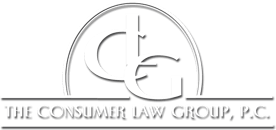Victims of the VW/Audi Emissions Scandal May Have a Legal Claim
In a shocking discovery, regulators have revealed that hundreds of thousands of 4-cylinder diesel Audis and Volkswagen vehicles sold in the United States contained software designed to cheat emissions tests. All of the cars involved in the scandal were marketed by the automaker as being “clean diesel,” with key features including fuel economy and driving dynamics. The fallout of the scandal’s discovery is expected to be enormous. Volkswagen Automotive Group CEO Martin Winterkorn has already issued his resignation. In addition, the company has set aside $7.3 billion to handle the situation. That amount could increase as more details unfold.
5 Important Facts About the VW Audi Emissions Scandal
As the scandal continues to draw national attention, several important facts have emerged:
- The scheme was discovered in 482,000 vehicles in the U.S. containing VW’s 2.0-liter turbo diesel engines. As many as 11 million vehicles worldwide could be impacted.
- In the U.S. the scheme involved vehicles sold since the 2009 model year.
- Volkswagen Automotive Group, the parent company of Volkswagen and Audi, reportedly embedded software in the vehicles’ electronics that allows the cars to emit up to 40 times the legal limit of nitrogen oxide.
- In addition, the software allowed the vehicles to appear in tests as if it were passing under the limit. When tested on a dynamometer in laboratories, the cars met regulation, but when used on the roadways, emitted 40 times the pollution of that emitted during the test.
- The automaker is now required to recall all of the effected vehicles and modify the emissions systems.
A shockingly high number of vehicles in the Volkswagen Automotive Group’s TDI Line are involved in the scandal. So far the following vehicles are known to be affected:
- 2009 to 2015 Volkswagen Jetta TDI
- 2009 to 2014 Volkswagen Jetta SportWagen TDI
- 2012 to 2015 Volkswagen Beetle TDI
- 2013 to 2015 Volkswagen Beetle Convertible TDI
- 2010 to 2015 Audi A3 TDI
- 2010 to 2015 Volkswagen Golf TDI
- 2012 to 2015 Volkswagen Passat TDI
- 2015 Volkswagen Golf SportWagen TDI
In addition, sales of all Volkswagen 2015 four-cylinder diesel models by VW dealers are currently being held up as they await certification from the Environmental Protection Agency.
How the Automaker Was Able to Fool Emissions Tests
With today’s advances in technology, many people may be wondering how the automaker was able to get away with this scandal. The answer is that the software embedded in the vehicles’ electronics was able to sense the emissions testing environment. It did this by analyzing data such as steering position, speed, duration of engine operation, and barometric pressure. If the software determined that it was in a testing environment instead of on the roadways, it adjusted the engine’s performance and emissions so that the vehicle was able to pass the tests.
How the Automaker Finally Got Caught
Environmental regulators in the U.S. and California finally uncovered the scheme after receiving valuable tips from international environmental groups and a West Virginia University study. After receiving the information, the regulators created a special test to be used on the vehicles. The test detected how the software in the engine’s electronic control module was able to fool the certification tests.
What Affected Vehicle Owners Can Do Now
Frustratingly for owners of the affected vehicles, many automotive experts believe that any repair to the software and emissions system will negatively impact the vehicles’ driving dynamics and fuel economy. These are two of the most important buying features in the affected cars. Many vehicle owners are now considering legal action as a result. What are some of the potential legal claims that may be available against the automaker? Here are several possible options:
- Fraudulent concealment
- Breach of contract
- Losses due to the diminished value of the cars
- Violation of consumer protection laws, including the Virginia Consumer Protection Act
- Breach of warranty
- Violation of advertising laws
| Related Links: |

